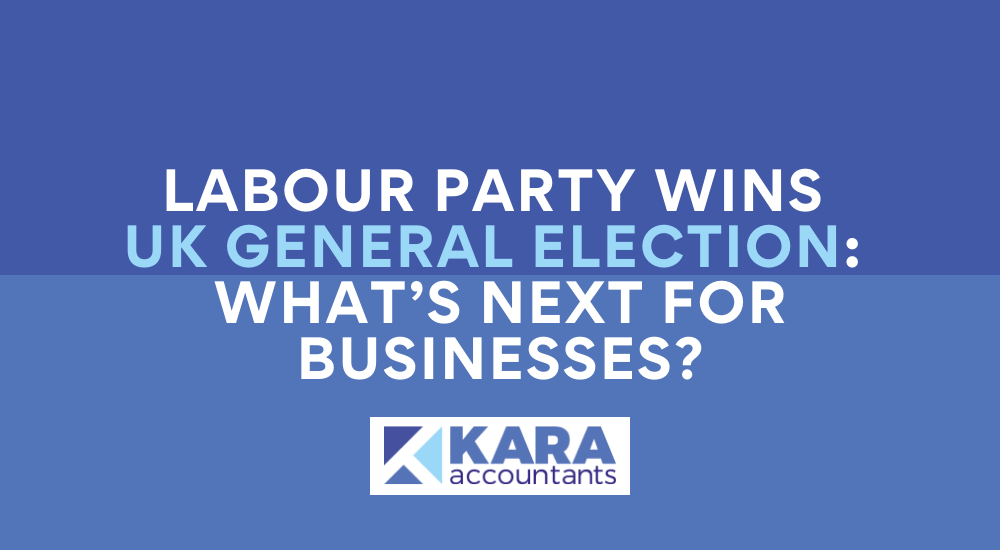
Labour Party Wins UK General Election: What’s Next For Businesses?
On 4 July 2024, the Labour Party, led by Sir Keir Starmer, won the UK general election, marking the first Labour government since 2010. The victory signals a significant shift in British politics and brings with it a promise of substantial changes across various sectors. Here’s what businesses can expect in the coming months:
1. Tax
Labour’s Shadow Chancellor, Rachel Reeves, confirmed that corporation tax will remain at 25%. A roadmap for business taxation will be published within a year. Labour plans to increase tax revenues by:
- Closing the “tax gap” through enhanced HMRC compliance.
- Introducing VAT on private school fees.
- Reforming “non-dom” rules to close loopholes.
- Taxing carried interest for private equity managers as income.
- Modifying the Energy Profits Levy to support their Green Prosperity Plan.
2. Financial Services and Regulation
Labour’s manifesto adds little to its January 2024 publication “Financing Growth.” Key points include:
- Keeping the UK outside the EU but improving trade and investment relations.
- Scaling regional financial centres and enhancing competitiveness through regulation.
- Focusing on consumer protection, sustainable finance, innovation, and fintech.
- Reviewing pensions and capital markets to boost investment in growth and green industries.
3. Competition
Labour plans significant reforms to the UK competition regime via the Digital Markets, Competition, and Consumer Act (DMCC). This includes:
- Empowering the CMA to regulate digital markets and AI.
- Enhancing investigatory powers in mergers and cartels.
- Seeking closer EU cooperation and revisiting national security screening rules.
4. Energy
Labour’s Green Prosperity Plan aims for a zero-carbon electricity system by 2030 with targets for wind and solar energy. They plan to:
- Lift the ban on new onshore wind installations.
- Establish Great British Energy, a public clean generation company.
- Set up a National Wealth Fund for energy and infrastructure investment.
5. Workers’ Rights
Labour’s “Plan to Make Work Pay” includes:
- Giving all working people full employment rights and making unfair dismissal protection immediate.
- Raising the national minimum wage to reflect the living wage.
- Banning zero-hour contracts and enhancing union rights.
6. Immigration
Labour aims to reduce reliance on overseas workers by upskilling the local workforce. They support a points-based immigration system and will:
- Reform the apprenticeship levy.
- Introduce stronger penalties for wage law violations.
7. Housing and Planning
Labour plans to build 1.5 million homes and promises:
- A permanent mortgage guarantee scheme.
- Prioritising brownfield site development.
- Abolishing “no fault evictions” and reforming leasehold laws.
8. Construction and Infrastructure
Labour’s net-zero agenda will impact construction through:
- Increased renewable energy projects.
- Potential disputes over new environmental regulations.
9. Corporate Affairs, Anti-Corruption, and Financial Crime
Labour will introduce a new fraud strategy, appoint a Covid Corruption Commissioner, and:
- Offer rewards to whistleblowers.
- Expand company registration transparency.
- Introduce deferred prosecution agreements for individuals in tax evasion cases.

This Post Has 0 Comments